How To Deal With Adversity In The Workplace
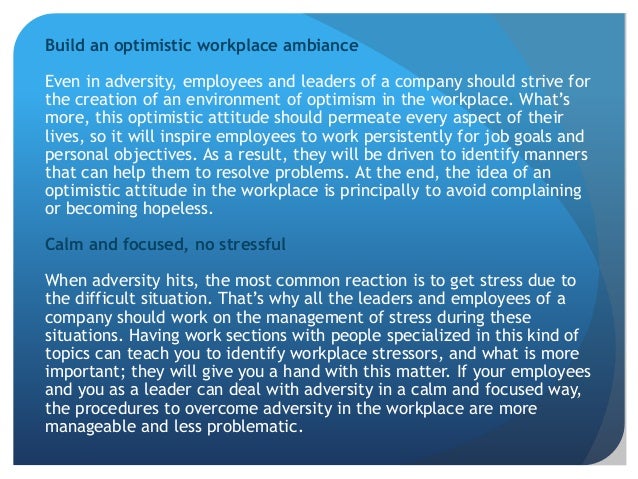
The fluorescent lights hummed a monotonous tune as Sarah stared at the overflowing inbox, each email a tiny wave in a rising tide of deadlines and demands. A project she'd poured her heart into had just been rejected, and the feedback, delivered with a sharp tone, stung. Sound familiar? Navigating workplace adversity is a skill we all need to hone.
This article delves into practical strategies for dealing with professional setbacks, transforming challenging situations into opportunities for growth, and building resilience in the face of adversity.
Understanding Workplace Adversity
Workplace adversity takes many forms. It could be anything from a difficult colleague or a demanding boss to project failures, organizational changes, or even economic downturns affecting the company.
According to a 2023 study by Gallup, only 34% of employees are engaged at work. This highlights a significant disconnect and potential for dissatisfaction that can contribute to feelings of adversity.
Recognizing the source of your stress is the first step. Is it a personality clash? A skills gap? Or is the overall company culture contributing to your unease?
Strategies for Thriving, Not Just Surviving
Embrace a Growth Mindset: Psychologist Carol Dweck’s research emphasizes the power of believing that abilities can be developed through dedication and hard work. Instead of seeing a setback as proof of inadequacy, view it as an opportunity to learn and improve.
Seek Support: Don't suffer in silence. Talk to a trusted colleague, mentor, or supervisor. The American Psychological Association (APA) recommends building strong support networks to buffer against stress. Sharing your concerns can provide valuable perspective and practical solutions.
Consider, "Is there someone I trust at work who I can have a completely confidential talk to?". Also, don't be afraid to seek out a therapist, especially when the stress is prolonged or too much to deal with on your own.
Develop Emotional Intelligence: Understanding and managing your own emotions, as well as recognizing the emotions of others, is crucial. Practice empathy and active listening. This will help you navigate difficult conversations and build stronger relationships.
Daniel Goleman, author of Emotional Intelligence, argues that EQ is often a better predictor of success than IQ, especially in leadership roles.
Set Boundaries: Learn to say no and prioritize your tasks. Overcommitting yourself leads to burnout and increased stress. Time management techniques, like the Pomodoro Technique, can help you stay focused and prevent overwhelm.
Practice Self-Care: Taking care of your physical and mental well-being is essential. Regular exercise, healthy eating, sufficient sleep, and mindfulness practices can significantly reduce stress levels and improve resilience.
Document Everything: When dealing with difficult situations, keep a detailed record of events, conversations, and emails. This documentation can be invaluable if you need to escalate the issue to HR or legal counsel.
Transforming Adversity into Opportunity
Adversity, while unpleasant, can be a catalyst for growth. It forces us to re-evaluate our skills, strategies, and perspectives. It can reveal hidden strengths and resilience we didn’t know we possessed.
Identify Lessons Learned: After a setback, take time to analyze what went wrong and what you can do differently next time. Turn failures into learning experiences. "I have not failed. I've just found 10,000 ways that won't work.” ― Thomas A. Edison
Develop New Skills: Identify areas where you need to improve and seek out training or mentorship opportunities. Continuous learning is crucial for staying relevant and adaptable in today's rapidly changing workplace.
Build Resilience: Resilience is the ability to bounce back from adversity. It's not about avoiding challenges, but about developing the coping mechanisms to navigate them successfully.
Finding the Silver Lining
Consider reframing negative experiences. Instead of focusing on what you've lost, focus on what you've gained: new skills, stronger relationships, increased self-awareness.
Sometimes, adversity can even lead to new opportunities you might not have otherwise considered. Take a step back and reflect to see if there might be a better path for your life and career.
Remember that workplace adversity is a common experience. It doesn't define you, but it can shape you. By developing effective coping strategies and embracing a growth mindset, you can not only survive but thrive in the face of challenges. This helps you build a fulfilling and successful career.

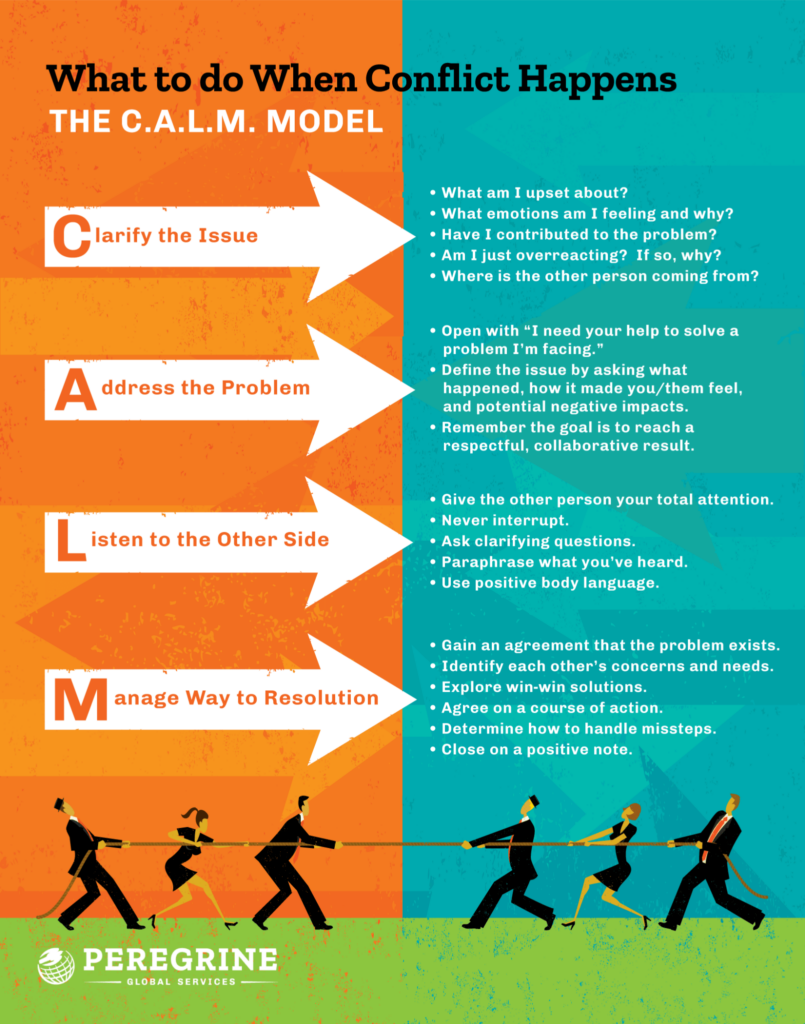
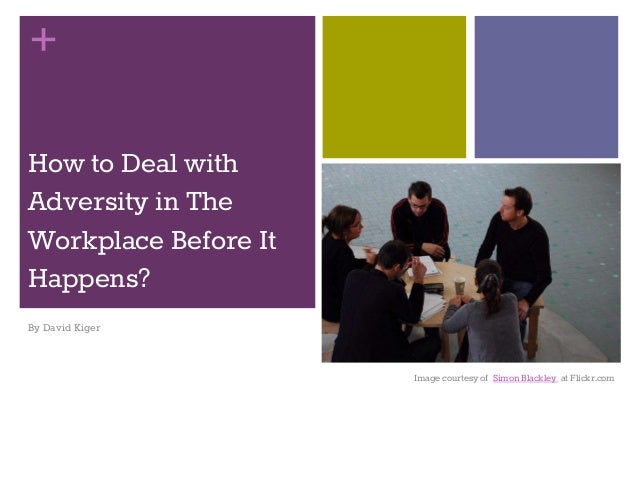
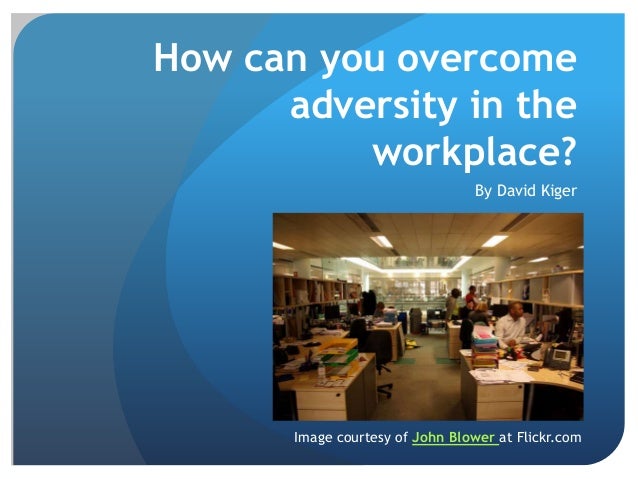
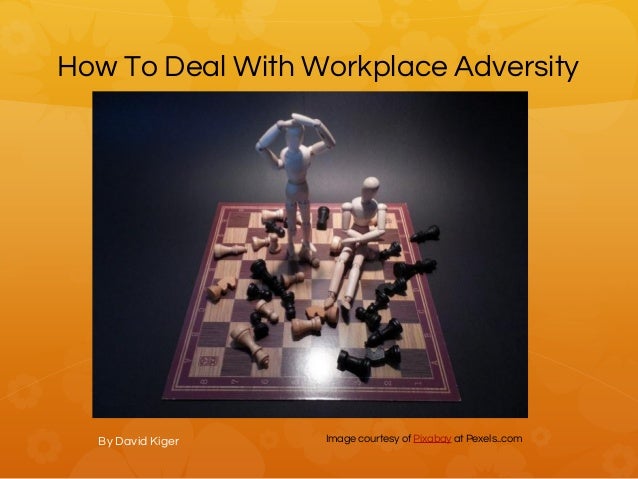


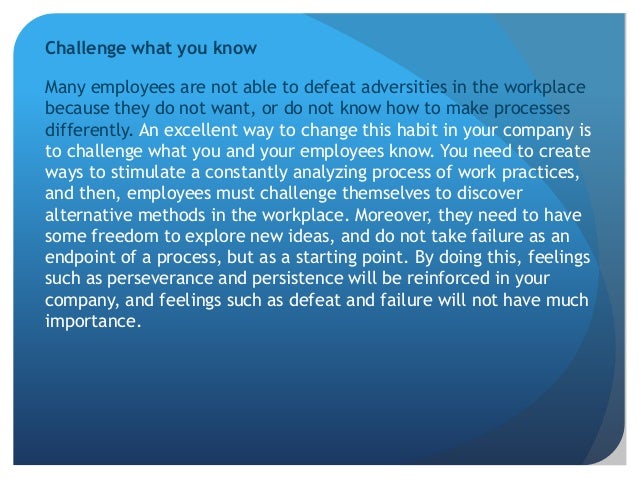
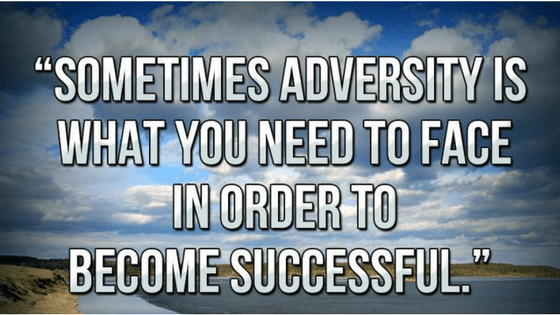

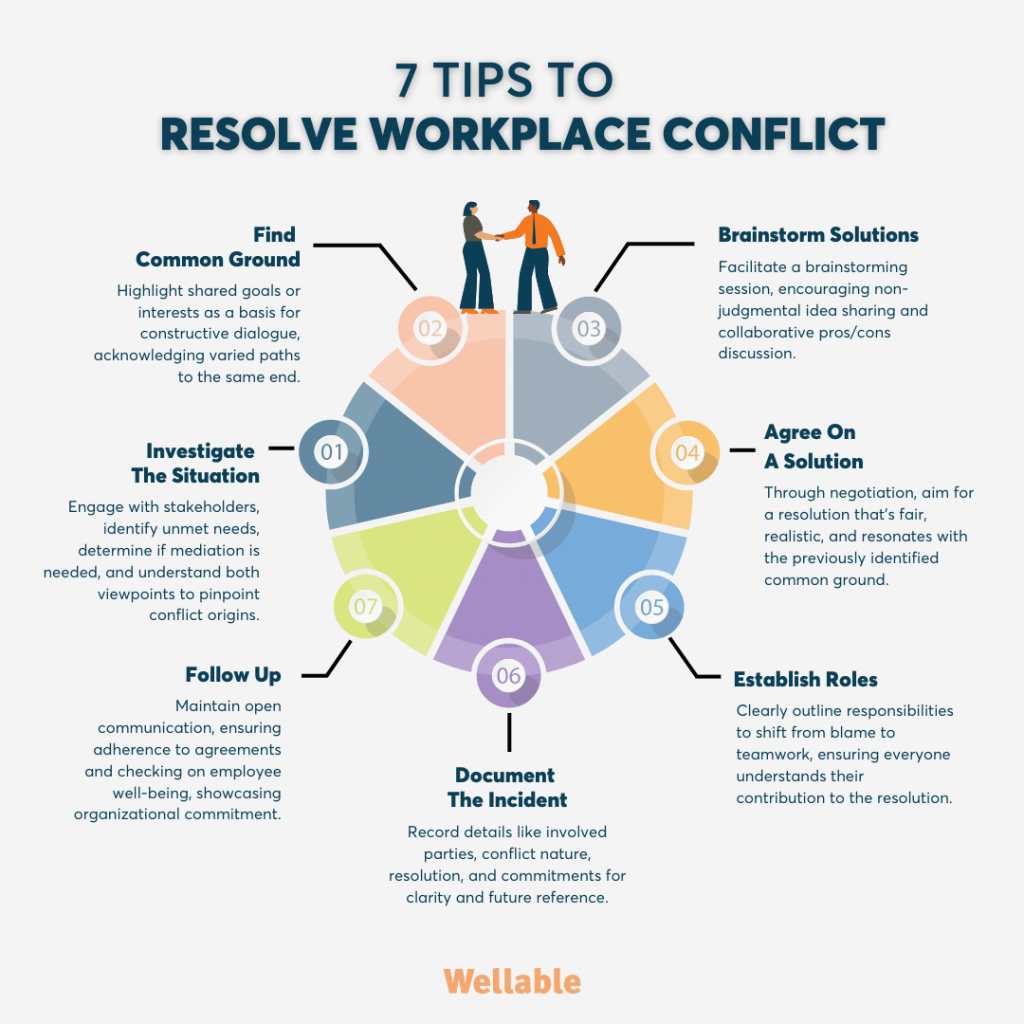





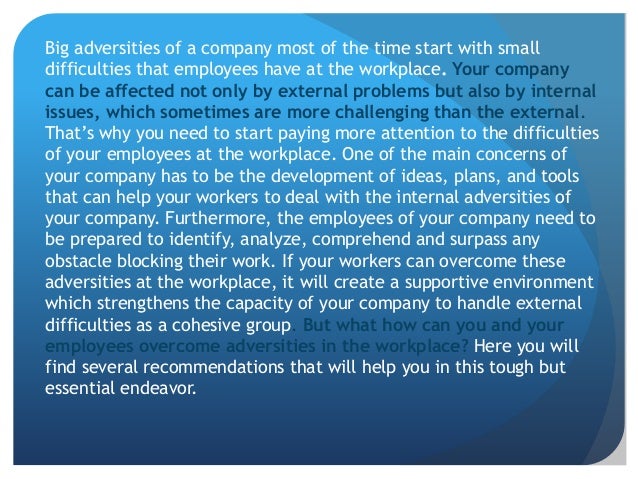
![How To Deal With Adversity In The Workplace [SpillingtheCoffee] How to Deal with Adversity in the Workplace - YouTube](https://i.ytimg.com/vi/6qnlU-gL_k4/maxresdefault.jpg)
